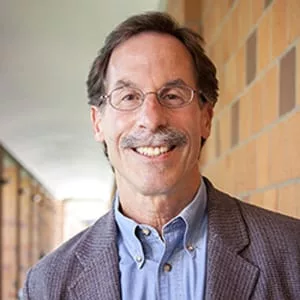
Home » Second chance hiring may expand talent pool for Tri-City employers
Second chance hiring may expand talent pool for Tri-City employers

November 14, 2018
By Jerry Goodstein
Washington became the 11th state to adopt the Fair Chance Act on June 2, extending “ban the box” job seeker protections to cover the state’s public and private employers. The bill delays criminal background checks until an applicant meets the basic criteria for the job and prohibits employers from automatically or categorically excluding individuals with a criminal record from consideration before determining they are otherwise qualified for the position.
 Jerry Goodstein,
Jerry Goodstein,
At the same time, with low unemployment rates (4.1 percent in Kennewick-Pasco-Richland) and job creation on the rise, businesses are struggling to fill open positions. A recent report from Washington State University, Business in the Northwest 2018: Insights from the Carson College of Business, revealed 72 percent of Northwest business leaders feel their company is in a position to create more jobs, but 60 percent are struggling to find qualified undergraduates from area universities when hiring. Industries with hard-to-fill positions, such as construction, retail and shipping/logistics, get hit the hardest.
There is a clear movement in the region toward “fair chance policies,” with neighboring states Oregon and California passing similar legislation in 2016 and 2018, respectively, and growing support in Montana and Idaho.
Unlike some states, Washington didn’t require employers to postpone background checks until conditional job offers were made. The Fair Chance Act now has the potential to influence hiring decisions. Importantly, it could open up a creative and responsible way to meet employer hiring needs in this tight labor market while also taking a step toward reducing crime in our communities. Perhaps it is time for Tri-City-area employers to consider second-chance hiring and screening in qualified individuals with criminal records as strategies for identifying employees for these hard-to-fill positions.
Finding employees for seasonal agricultural work in the Tri-City area is particularly challenging in this low unemployment economy. Individuals with criminal records may represent an underutilized source of employees.
Since 2010, Washington has introduced “farm to prison” programs in a number of correctional facilities. These programs provide inmates with opportunities to learn agriculture-related skills while planting, growing and harvesting produce on prison farms for consumption in the state prisons. The Washington State Penitentiary in Walla Walla, for example, has a 250-acre farm run by Correctional Industries, a part of the Washington State Department of Corrections.
There are a number of important barriers to second-chance hiring. Given the stigma associated with having a criminal record, employers are concerned about protecting their reputation. There are practical challenges employers confront as well, given second-chance candidates, particularly if they have been incarcerated for long periods of time, may not have the education or skills employers are looking for, or have parole-related commitments that make it difficult to maintain regular work hours.
But there are also good reasons to consider giving individuals with criminal records a second chance. In my research, I’ve found that employers who have hired these individuals praise their willingness to take on tough jobs and work hard, often as a way to express their gratitude for being given a second chance and to demonstrate their value to the organization. These employers highlight the importance of giving individuals with criminal records a second chance, helping them rebuild their lives and reintegrate into society.
Some organizations also see second-chance hiring as a form of corporate social responsibility and a way to contribute to their local communities. They are right. Numerous studies show that stable employment for individuals with criminal records reduces the likelihood that they will commit additional crimes and potentially be re-arrested, which ultimately contributes to safer and stronger communities.
Many of the employers I’ve studied and learned about are strategic in their second-chance hiring efforts. They often partner with local and national re-entry organizations to reduce the risk and uncertainty of individuals with criminal records. These organizations work directly with individuals with criminal records, particularly those recently released from incarceration, to provide them with essential services, e.g. housing assistance, and critical skills training for employment. Partnering with re-employment organizations, such as Pioneer Human Services in Washington or the Department of Corrections office in the Tri-City area, can help address risks or concerns and put Tri-City employers in a better place to make a good hire.
With an open mind and some creativity, hiring individuals with criminal records could represent a unique business and social opportunity. From meeting the growing demand for hard-to-fill positions, to giving these individuals a chance to rebuild their lives and positively contribute to their communities, screening in this often-overlooked source of candidates is not only good for Tri-City employers, it’s good for society and for Washington.
Jerry Goodstein is a professor at Washington State University’s Carson College of Business, teaching strategic management, organizational design, leadership and business ethics.
Local News Labor & Employment
KEYWORDS november 2018





